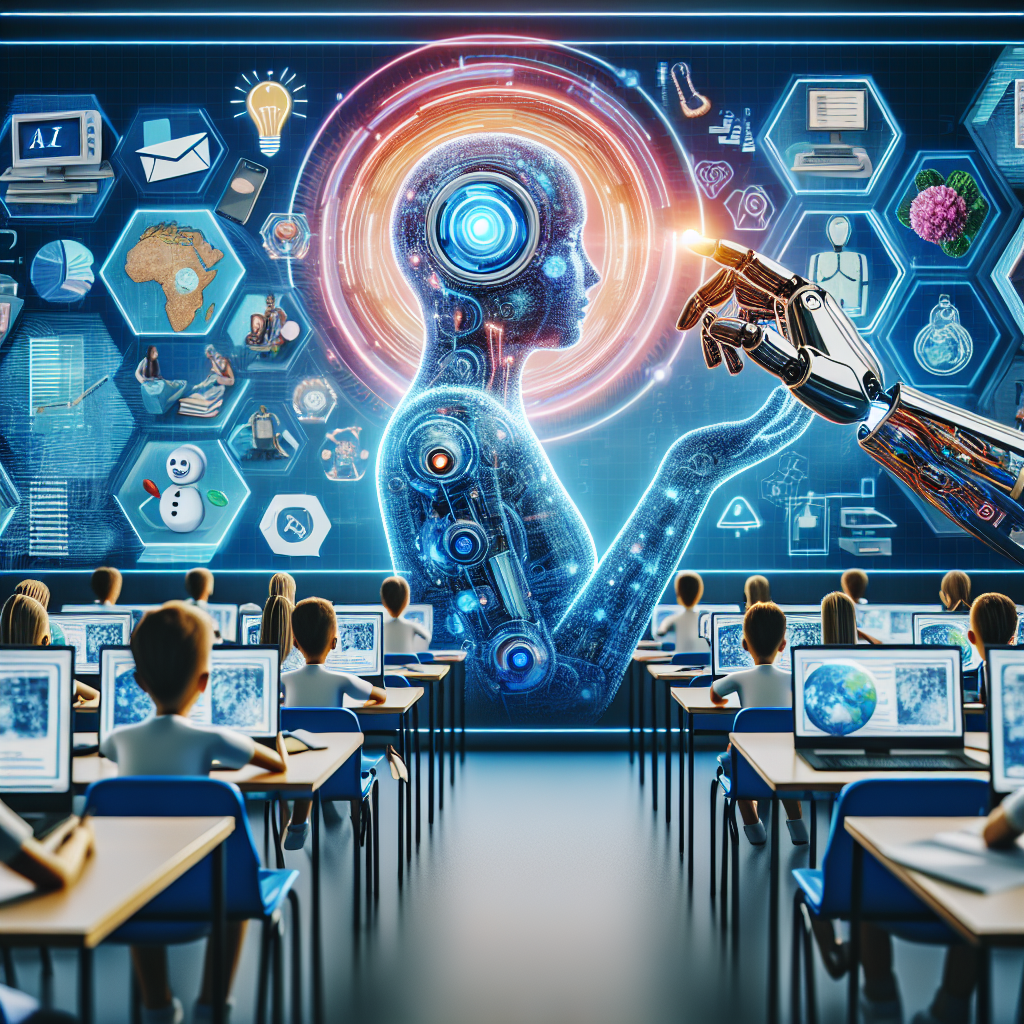Artificial intelligence (AI) is revolutionizing the way we live and work, and one of the most exciting applications of this technology is in the field of education. AI has the potential to transform the way students learn, teachers teach, and schools operate. In this article, we will explore the impact of artificial intelligence in education and discuss how this technology is reshaping the future of learning.
One of the key ways in which AI is transforming education is through personalized learning. AI-powered systems can analyze a student’s learning style, pace, and preferences to create a customized learning experience. This allows students to learn at their own pace and in a way that suits their individual needs. For example, AI can recommend specific resources, exercises, or study materials based on a student’s strengths and weaknesses. This personalized approach can help students to stay engaged and motivated, leading to better learning outcomes.
AI can also help teachers to be more effective in the classroom. By automating routine tasks such as grading assignments, tracking attendance, and managing administrative tasks, AI allows teachers to focus on what they do best – teaching. AI can also provide teachers with valuable insights into student performance, helping them to identify areas where students may need additional support and guidance. This data-driven approach can help teachers to tailor their teaching strategies to meet the needs of each student, leading to improved student outcomes.
In addition to personalized learning and teacher support, AI is also being used to enhance the learning experience through the use of virtual reality (VR) and augmented reality (AR) technologies. These immersive technologies allow students to explore complex concepts in a hands-on way, bringing learning to life in ways that were previously impossible. For example, students can take virtual field trips to historical sites, conduct virtual experiments in a science lab, or practice real-world skills in a safe and controlled environment. This not only makes learning more engaging and interactive but also helps students to develop critical thinking, problem-solving, and collaboration skills.
Another area where AI is making a significant impact in education is in the field of language learning. AI-powered language learning platforms can provide students with personalized lessons, instant feedback on pronunciation and grammar, and real-time language translation. This can be particularly helpful for students learning a second language, as it allows them to practice speaking and listening skills in a supportive and non-judgmental environment. AI can also help to bridge the gap between students who may have different levels of proficiency in a language, allowing them to learn at their own pace and receive targeted support where needed.
AI is also being used to improve accessibility and inclusivity in education. For students with disabilities or learning differences, AI-powered tools can provide additional support and accommodations to help them succeed in the classroom. For example, AI can provide text-to-speech or speech-to-text capabilities for students with visual or auditory impairments, or offer personalized learning resources for students with specific learning challenges. By leveraging the power of AI, schools can ensure that all students have equal access to quality education and are able to reach their full potential.
Despite the many benefits of AI in education, there are also some challenges and concerns that need to be addressed. One of the main concerns is around data privacy and security. AI systems collect and analyze large amounts of data on students, teachers, and schools, raising questions about who owns this data, how it is used, and how it is protected. Schools and educational institutions need to be transparent about the use of AI in education and ensure that appropriate safeguards are in place to protect the privacy and security of sensitive information.
Another challenge is around equity and access. While AI has the potential to enhance learning for all students, there is a risk that it may widen the achievement gap between students from different socioeconomic backgrounds. Schools and policymakers need to ensure that AI is used in a way that promotes equity and inclusivity, providing all students with equal opportunities to benefit from this technology. This may require investing in infrastructure, training teachers, and providing support to schools that may not have the resources to implement AI-powered systems on their own.
In conclusion, the impact of artificial intelligence in education is profound and far-reaching. AI has the potential to revolutionize the way we teach and learn, making education more personalized, engaging, and effective. By leveraging the power of AI, schools can provide students with a 21st-century education that prepares them for success in an increasingly complex and interconnected world. As AI continues to evolve and advance, it is essential that we harness this technology responsibly and ethically, ensuring that it benefits all students and helps to create a more inclusive and equitable education system.
FAQs:
Q: How is artificial intelligence being used in education?
A: AI is being used in education in a variety of ways, including personalized learning, teacher support, virtual and augmented reality, language learning, and accessibility and inclusivity.
Q: What are some of the benefits of using AI in education?
A: Some of the benefits of using AI in education include personalized learning, improved teacher effectiveness, enhanced learning experiences, language learning support, and increased accessibility and inclusivity.
Q: What are some of the challenges of using AI in education?
A: Some of the challenges of using AI in education include data privacy and security concerns, equity and access issues, and the need for appropriate training and support for teachers and schools.
Q: How can schools ensure that AI is used responsibly and ethically in education?
A: Schools can ensure that AI is used responsibly and ethically by being transparent about the use of AI, protecting the privacy and security of student data, promoting equity and inclusivity, and providing appropriate training and support for teachers and schools.

